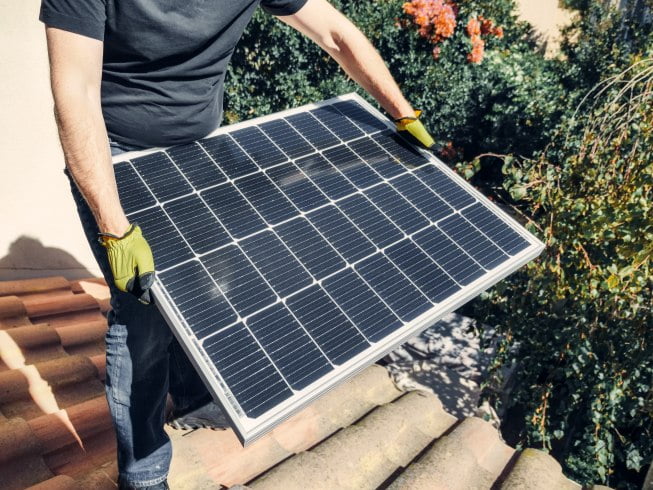Introduction:
What is a Solar Panel?
Solar panels are a device that converts the sun’s rays into electricity. They are made up of photovoltaic cells, which use light to generate an electric current. The cells are arranged in layers, with each layer oriented at a different angle to capture the most amount of sunlight possible.
Solar panels have been around since 1954 and have been used for many purposes. In recent years, they have become more popular as a way to generate clean energy for homes and businesses.
So What Are the Two Types of Solar Panel Systems?
Solar panels are a great way to cut down on monthly electricity bills and help the environment. There are a number of different types of solar panels, and each one has its own benefits. The type of solar panel you choose will depend on your budget, the amount of space you have on your property for installation, and what type of energy efficiency you’re looking for in terms of cost.
How much does a Solar Panel cost to Install?
Solar panels are a great investment that cost as much as your old power bill to install. Solar panels have been around for nearly 50 years now, and they’re becoming more popular as the price of electricity increases.
What are the Benefits of Installing a Solar Panel at Home?
Solar panels are a great way to save money and reduce your carbon footprint. They can provide clean power for your home and even for your electric car. Solar panels are becoming more affordable and they have a lot of benefits that make them worth installing.
Solar panels can be expensive upfront, but they offer a great return on investment over the long-term. They pay for themselves in just a few years and you will see savings in your monthly bill as well as reduced electricity bills from the grid. Solar panels also help you to produce clean energy which is good for the environment.
The Pros and Cons of Solar Panels Explained
Solar panels are an excellent way to produce electricity for your home. They are also an environmentally friendly way to produce power. However, there are some drawbacks to solar panels.
The pros of solar panels include the fact that they produce clean electricity and they do not emit greenhouse gases or other pollutants into the atmosphere. Solar panels also require no fuel, which means that they don’t emit any harmful emissions into the air or release CO2 into the atmosphere. Solar panels can be a good investment because their cost is going down while their efficiency is going up with each passing year.
Introduction
Pros
Solar panels are an investment that will pay off in the future. As the need for renewable energy sources continues to grow, solar panels are becoming a common sight.
Cons
Solar panels harness the sun’s energy to power your home during the day. The solar power is stored in a battery that can be used throughout the night. The only problem with solar panels is that they require an uninterrupted supply of electricity to work effectively.
Conclusion
Solar panels are quickly becoming an affordable, sustainable way to generate electricity. The cost of solar panels has dropped by 73% in the past 10 years, and more people are installing them every day.
Introduction:

The Basic Principles of Solar Panels & How They Work in Conjunction with Your Home’s Power Grid
The basic principles of solar panels is to convert sunlight into electricity. The solar panels are made up of photovoltaic cells that are sensitive to light and convert it into electricity. Solar panels also require a solar inverter to convert the direct current (DC) from the photovoltaic cells to alternating current (AC) for use in the home.
Solar panels can be installed on a roof, on a ground mount, or in an air-conditioned room near your home’s power grid. The type of installation will depend on your geographic location and preference for aesthetics versus efficiency.
What are the Advantages of Installing Solar Panels on Your Roof?
There are many advantages of installing solar panels on your roof. The first advantage is that you will save money on your energy bills. It is estimated that the average person can save about $2,000 a year by installing solar panels. Another advantage is that you will reduce pollution. By using solar power rather than fossil fuels, you are significantly reducing your carbon footprint and helping to preserve the environment for future generations. Finally, you will be able to take advantage of tax incentives that may be available in your area.
How to Choose the Best Solar Panel System for Your Home
Home solar panel installation cost and the type of panels installed usually depend on the size and orientation of your roof, how much sunlight it receives, and what your energy needs are. Typically, the more electricity you use, the larger your solar panel system should be in order to meet your needs.
How to Calculate the Costs and Returns of Installing Solar Panels on Your Roof
Solar panels are an expensive investment at first glance, but in the long run, they are cheaper than relying on traditional power sources. Installing solar panels on your roof will cost you between $4,500 and $6,500 for a typical 4 kW system or between $10,000 and $14,000 for an 8 kW system

